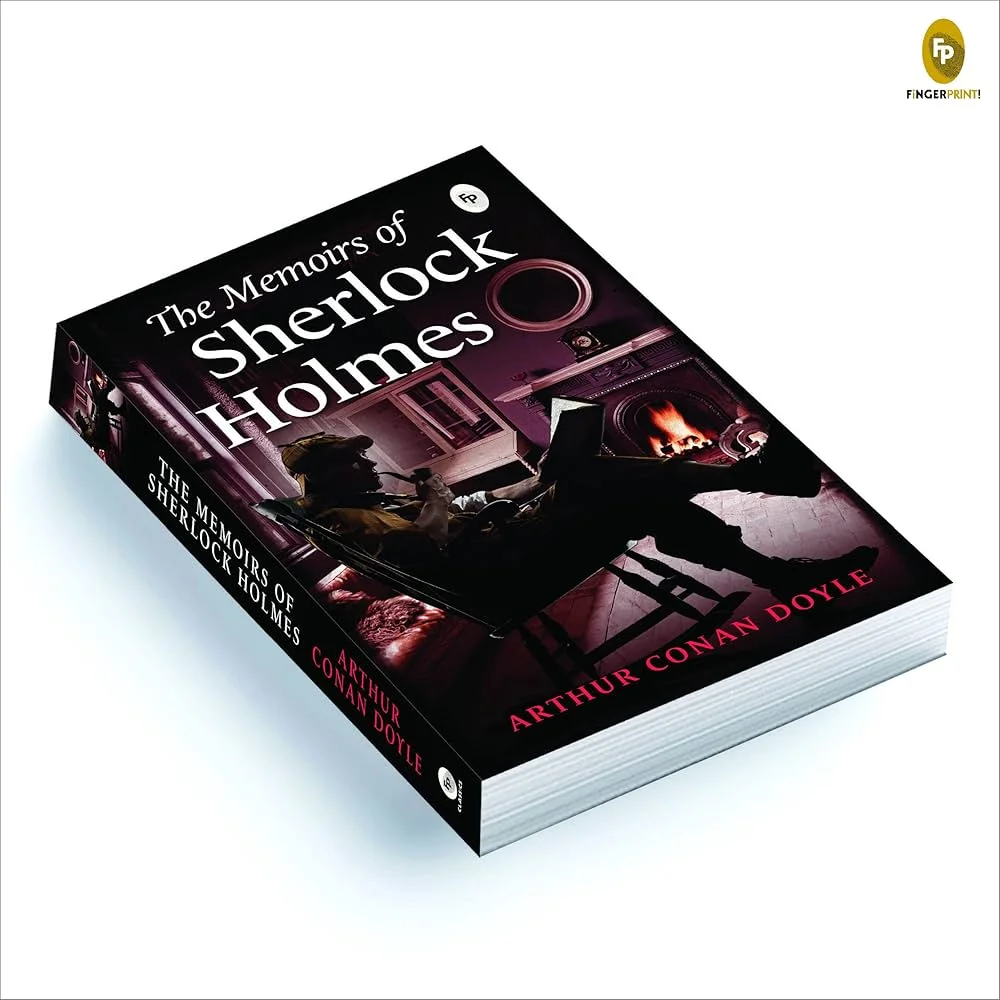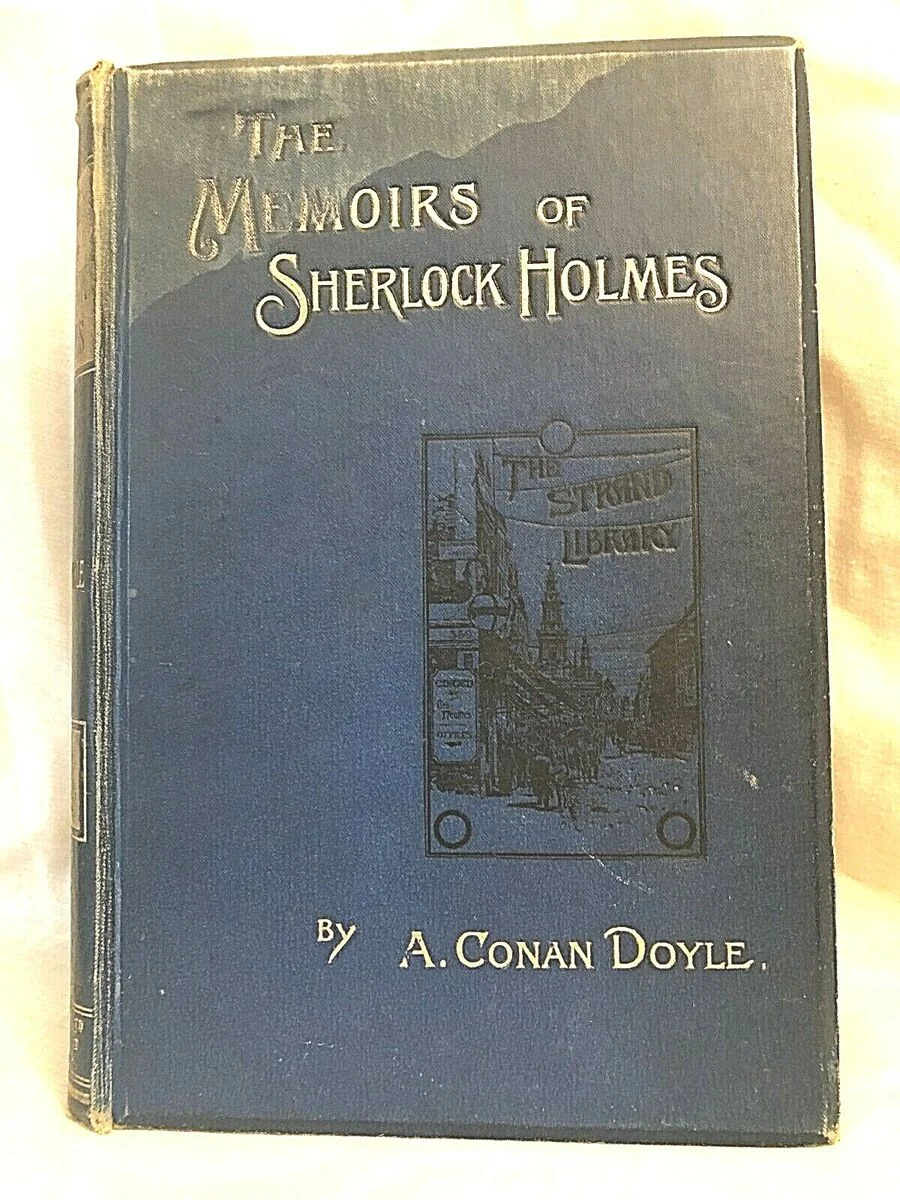The allure of Sherlock Holmes has always been a constant in my life, but it wasn’t until a rainy weekend in London that I found myself truly immersed in the world of the legendary detective. Wandering through a quaint bookshop in Covent Garden, I stumbled upon a well-worn copy of “The Memoirs of Sherlock Holmes” by Arthur Conan Doyle. The timing couldn’t have been more perfect – the gloomy weather outside seemed to mirror the mysterious atmosphere of Holmes’ London, and I felt an irresistible urge to dive into these classic tales.
As I began reading, I was immediately struck by the richness of Doyle’s storytelling. This collection of eleven short stories is a masterclass in detective fiction, each tale meticulously crafted to showcase Holmes’ extraordinary deductive skills. From the very first story, “Silver Blaze,” I found myself completely engrossed. The case of the missing racehorse and the “curious incident of the dog in the night-time” had me pondering the clues alongside Holmes and Watson, marveling at the intricate plot and the satisfying resolution.
One of the greatest strengths of this collection is its ability to provide a deeper insight into Holmes’ character. Through stories like “The Gloria Scott,” which delves into Holmes’ past, I felt as if I was peeling back the layers of this enigmatic figure. It’s a testament to Doyle’s skill as a writer that he can maintain Holmes’ air of mystery while simultaneously allowing readers to feel a greater connection to him.
However, I must admit that not every story in the collection resonated with me equally. While most were brilliant, a few felt slightly less engaging or memorable. “The Yellow Face,” for instance, while interesting for its departure from the usual formula (Holmes actually gets it wrong!), didn’t captivate me as much as some of the others. But perhaps this variety is part of the collection’s charm, showcasing different facets of Holmes’ cases and Doyle’s writing style.
One of the most memorable aspects of the book for me was the introduction of two pivotal characters: Mycroft Holmes and Professor Moriarty. The story “The Greek Interpreter,” which introduces Sherlock’s older brother Mycroft, was a delightful surprise. The idea that there exists someone even more brilliant than Sherlock, yet lacking his drive, added a fascinating dimension to the Holmes universe. I found myself chuckling at the brothers’ interaction, particularly when Sherlock says, “If the art of the detective began and ended in reasoning from an armchair, my brother would be the greatest criminal agent that ever lived.”
But it was “The Final Problem” that truly left me breathless. The introduction of Professor Moriarty as Holmes’ intellectual equal and moral opposite created such tension and excitement that I couldn’t put the book down. The description of their final confrontation at Reichenbach Falls was so vivid that I felt as if I was there, witnessing this epic moment in literary history. Doyle’s writing in this story is particularly powerful, capturing the sense of impending doom and the weight of Holmes’ sacrifice. The line, “If I am to have an end, let it be one which is worthy of my life,” sent chills down my spine.
Doyle’s writing style throughout the collection is a joy to read. His prose is clear and elegant, with a perfect balance of description and dialogue. He has a knack for creating atmosphere, whether it’s the cozy warmth of Baker Street or the eerie isolation of a country manor. What impressed me most was his ability to make the complex seem simple. Holmes’ deductions, while astounding, are always explained in a way that makes the reader feel clever for following along.
Reading “The Memoirs of Sherlock Holmes” has rekindled my love for mystery fiction and reminded me of the power of deductive reasoning. It’s made me more observant in my daily life, trying (often unsuccessfully) to notice the small details that Holmes would pick up on instantly. More than that, it’s reinforced the idea that intelligence without compassion or moral grounding can be dangerous – a theme that feels particularly relevant in today’s world.
I would wholeheartedly recommend this book to anyone, whether they’re longtime Holmes fans or newcomers to the detective genre. For the uninitiated, it’s a perfect introduction to one of literature’s most enduring characters. For those already familiar with Holmes, this collection offers deeper insights and some of the most iconic moments in the canon.
As I closed the book after finishing “The Final Problem,” I felt a mix of satisfaction and sadness – satisfaction at having experienced these brilliant stories, and sadness at the thought of Holmes’ apparent demise. But like the Victorian readers who demanded more Holmes adventures, I found myself eager to continue my journey through Doyle’s works.
“The Memoirs of Sherlock Holmes” is more than just a collection of detective stories; it’s a window into a bygone era, a showcase of literary craftsmanship, and a testament to the enduring appeal of one of fiction’s greatest characters. It has earned its place not just on my bookshelf, but in my heart as well. As Holmes himself might say, the game is afoot – and I’m thrilled to be playing along.